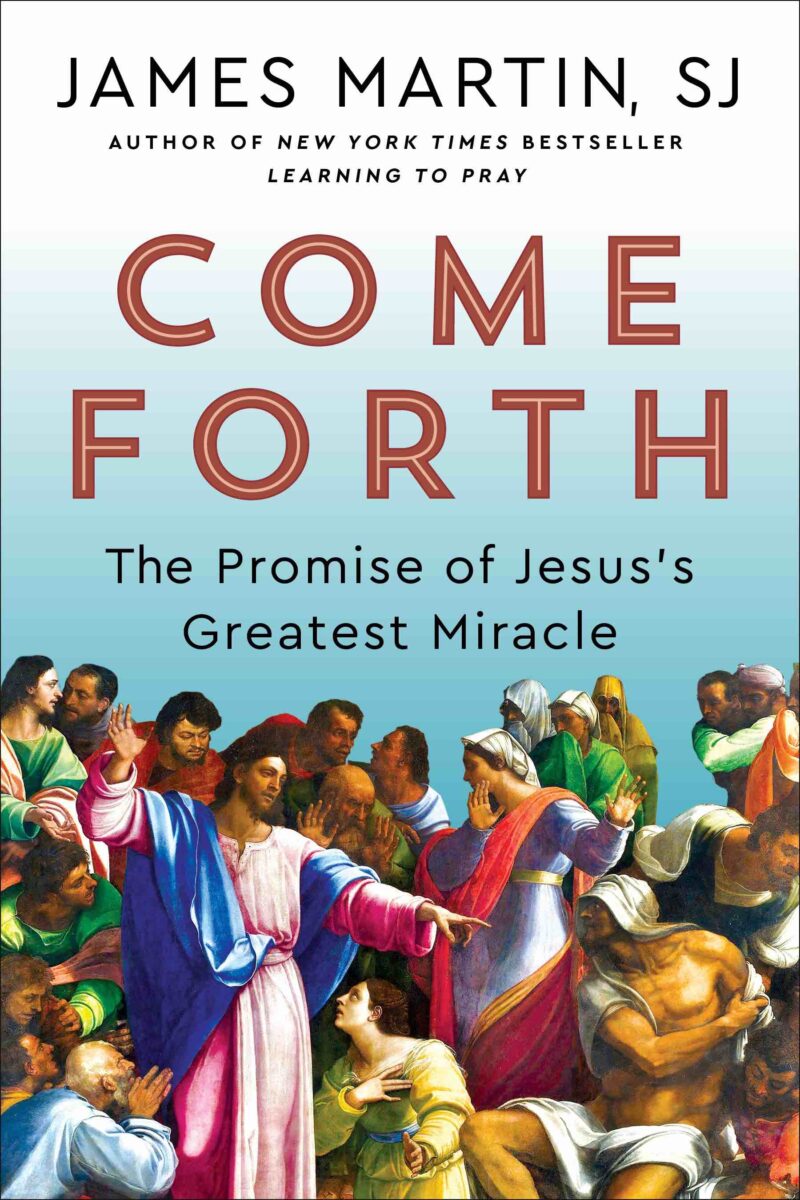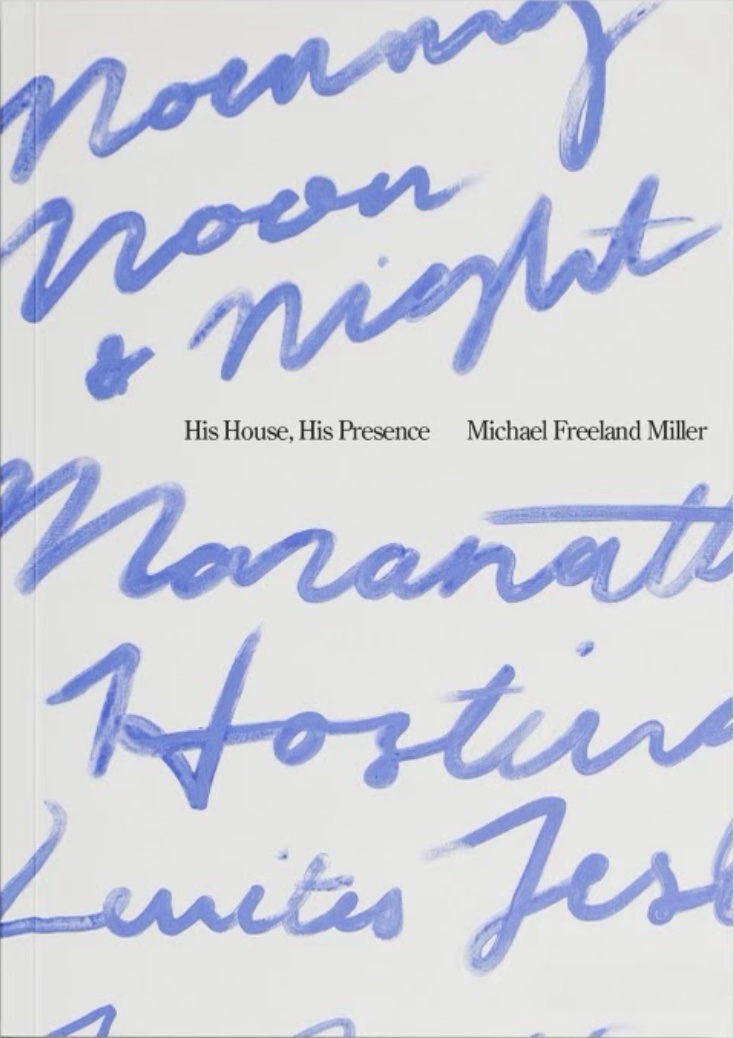Embracing Serenity Through Letting Go: Father James Martin & Michael Freeland Miller
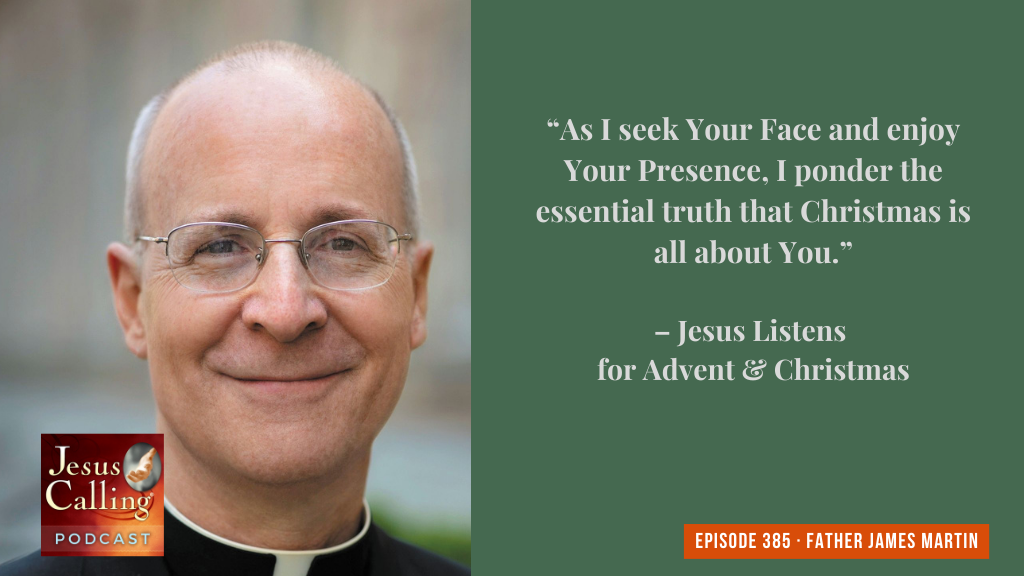
Father James Martin: There’s something that is keeping you unfree, bound. And the key is to know that God is calling you to let that die, to leave it behind in the tomb, and to hear God say to you, “Come forth.”
Embracing Serenity Through Letting Go: Father James Martin & Michael Freeland Miller – Episode #385
Narrator: Welcome to the Jesus Calling Podcast. As we celebrate the season of advent, it’s a wonderful time to focus on prayer. This dialogue with God can be an avenue leading us to tranquility by enabling us to articulate our deepest fears, hopes, and concerns. It provides an opportunity to let go and surrender our burdens. In the practice of releasing our worries, we open ourselves up to God’s calming embrace of serenity.
Father James Martin is a Jesuit priest who is a student of scripture, helping bring it to life for people in new ways. In his latest book called Come Forth, Father Martin explores the story of Lazarus and how understanding the context for Jesus’ greatest miracle can have meaning for us as we strive to let go of things that no longer serve us, and have faith that Jesus can give us new life, just as He gave His friend Lazarus. After Father Martin walks us through the miraculous story of Lazarus, he brings a special message for us about the meaning of Advent as we celebrate this special time of year.
Also, be sure to stay with us for a special reading from country music star Reba McEntire, from her new audiobook, Not That Fancy. Now, let’s hear from Father Martin.
Father Martin: My name is Jim Martin, I’m a Jesuit priest. And for those who don’t know, that’s a Catholic religious order. I work at a Catholic magazine called America Magazine, and then I’m also someone who helps out a little bit consulting at the Vatican for different things from time to time.
Come Forth
I just came out with a book called Come Forth: The Promise of Jesus’s Greatest Miracle, which is about the raising of Lazarus and how it helps us to understand God calling us to new life.
There was a man named Lazarus, he’s introduced as being sick. He’s the brother of Mary and Martha, who live in Bethany. And the sisters send word to Jesus that their brother is ill. But interestingly, they don’t say, “Lazarus.” They say, “He whom you love is ill.” Jesus had friends, not just disciples, people who were following Him, but people who were friends. And certainly, Jesus spent time in Mary and Martha’s house. We know that from Luke. Some people say, “Well, they weren’t even disciples, they were friends.” And I think it’s good to kind of think about that distinction, right? That Jesus had friends.
Jesus waits a couple of days, which is a little mysterious, finally comes to Bethany. Martha rushes up to Him and says a really great line, “Lord, if you had been here, my brother would not have died.” A bit of a profession of faith, but also a bit of a complaint, right? A bit of a reproach. It’s a kind of adult, balanced, respectful but honest relationship that I’m talking about, and that Martha shows very beautifully. “Lord, if you had been here,” right?
They bring Him to the tomb. It’s been four days now, so [Lazarus is] dead. When He gets there, He cries at the tomb. You know, that’s the famous—depending on the translation, either Jesus begins to weep or Jesus weeps or Jesus wept.
One of the things that I think might be a little challenging for people is that for people who do love this story, it is the supreme example of Jesus’s humanity. Because for the one thing, He’s physical, where He literally can produce tears. So He’s not some robot or non-human. He cries. But also, it’s beloved for people because it shows that Jesus loved His friend and Jesus cries like us, and He’s sad.
He asks people to take away the stone, and then He stands and He says the famous words, “Lazarus, come out,” or, “Come forth,” and he comes out bound in his grave clothes, and Jesus says, “Untie him and let him go.” Everyone sees Lazarus rise from the dead.
In terms of drama, I mean, it’s really unmatched. It is Jesus’s greatest miracle. Something is special about Lazarus, because Jesus risks stoning to come and raise His friend.
What Can the Story of Lazarus Tell Us About Our Own Lives?
Basically, the question is what can this story tell us about our own lives? It’s about how this story can help us think about what we want to sort of leave behind in our tombs, as it were. What do we want to let die? What do you want to let go of? What do you want to get rid of? What patterns, what behaviors, what addictions do we want to leave behind in the tomb to let die so that we can hear God’s voice inviting us to come forth?
“What do we want to let die? What do you want to let go of? What do you want to get rid of? What patterns, what behaviors, what addictions do we want to leave behind in the tomb to let die so that we can hear God’s voice inviting us to come forth?” – Father James Martin
As His greatest miracle, it can make us feel distant from the story, like, “Well, that’s never going to happen to us.” And that’s why I think unpacking the story can really help us to see what it means for us today, right? I mean, in addition to leaving it [in the tomb], to use it as a way of helping us experience new life and leaving behind what we need to leave behind in our tombs.
I do think we’re all called to have faith, obviously, right? So we all want that. I think, first of all, we’re all called to be honest with God, just like Martha was. I mean, she is honest with Jesus because she knows Him. She knows that He loves her. She loves Him. And so the first thing is honesty, but the second thing is trust that God is listening to us, and the third thing is acceptance for whatever God chooses to do.
In each of our lives, we have things that keep us unfree, that keep us bound like Lazarus, that keep us dead, basically, right? So what are they? I mean, they might be you’re mean or you’re sarcastic or you always want to be right, or you’re obsessed with your appearance or money or whatever, or you’re just you have some grudge or resentment or disappointment. What do you want to let die? Leave it behind in the tomb and hear God calling you to new life.
Advent: A Time of Expectant Waiting
People feel so stressed at Christmas, and what is really a joyful holiday becomes sort of a burden. There’s always this temptation at Christmas to want to do everything, visit every person, write every single person you know a Christmas card, buy everyone a gift, sort of go for broke when it comes to Christmas dinner. And I think doing less might be helpful.
“People feel so stressed at Christmas, and what is really a joyful holiday becomes sort of a burden. There’s always this temptation at Christmas to want to do everything, visit every person, write every single person you know a Christmas card, buy everyone a gift, sort of go for broke when it comes to Christmas dinner. And I think doing less might be helpful.” – Father James Martin
So most people know what Lent is, the period preceding Easter, a kind of period of spiritual preparation. And Advent is really the same for Christmas. It’s a lot more joyful, because it has that kind of penitential aspect to it. But Advent is really getting ready for Christmas, and the readings in the Christian tradition are all about John the Baptist, and they’re from the book of Isaiah and the desert blooming and things getting ready to come. And it’s really hopeful.
I think it really is my favorite time of year. And frankly, I’ve often said that I think I like Advent better than Christmas because Advent, so far, has not been overtaken by commercial forces. It’s really all about preparation, praying with the readings.
I think spending time in the readings from the Old Testament, the readings from the New Testament, the Psalms, and just giving yourself time to pray about them and just relax and think, You know, really, what does it mean that God became human? What does that mean for me? What does it mean that God was human in the most vulnerable way possible? What does it mean that God would choose to be vulnerable and little and dependent on human beings, on Mary and Joseph?
“What does it mean that God became human? What does that mean for me? What does it mean that God was human in the most vulnerable way possible? What does it mean that God would choose to be vulnerable and little and dependent on human beings, on Mary and Joseph?” – Father James Martin
The world desires Jesus. The world wants Jesus. The world expects Jesus. Come, thou long awaited Messiah. You might even take a Christmas carol and look at the lyrics and say, “What does this mean to me?” Just to kind of think about that and relax and pray about it, maybe read a little bit about it. You know, instead of being on Amazon all day and clicking for the next gift, trying to get the right thing—stressing out about it may not be as helpful as just five minutes of prayer. It’s about balance, I think. And Advent enables us to slow down a bit.
“Instead of being on Amazon all day and clicking for the next gift, trying to get the right thing—stressing out about it may not be as helpful as just five minutes of prayer. It’s about balance, I think. And Advent enables us to slow down a bit.” – Father James Martin
God Became Flesh
God became flesh and dwelt among us. And why does God do that? Because God wants to not only participate in our reality, but enable us to participate in God’s reality. Right? Because when Jesus comes close to us, we can relate to God in that way better. God becomes human in order that we might relate to God better. It really is extraordinary when you think about God becoming us in a particular time and in a particular place. It’s just a beautiful gift of love.
“God becomes human in order that we might relate to God better.” – Father James Martin
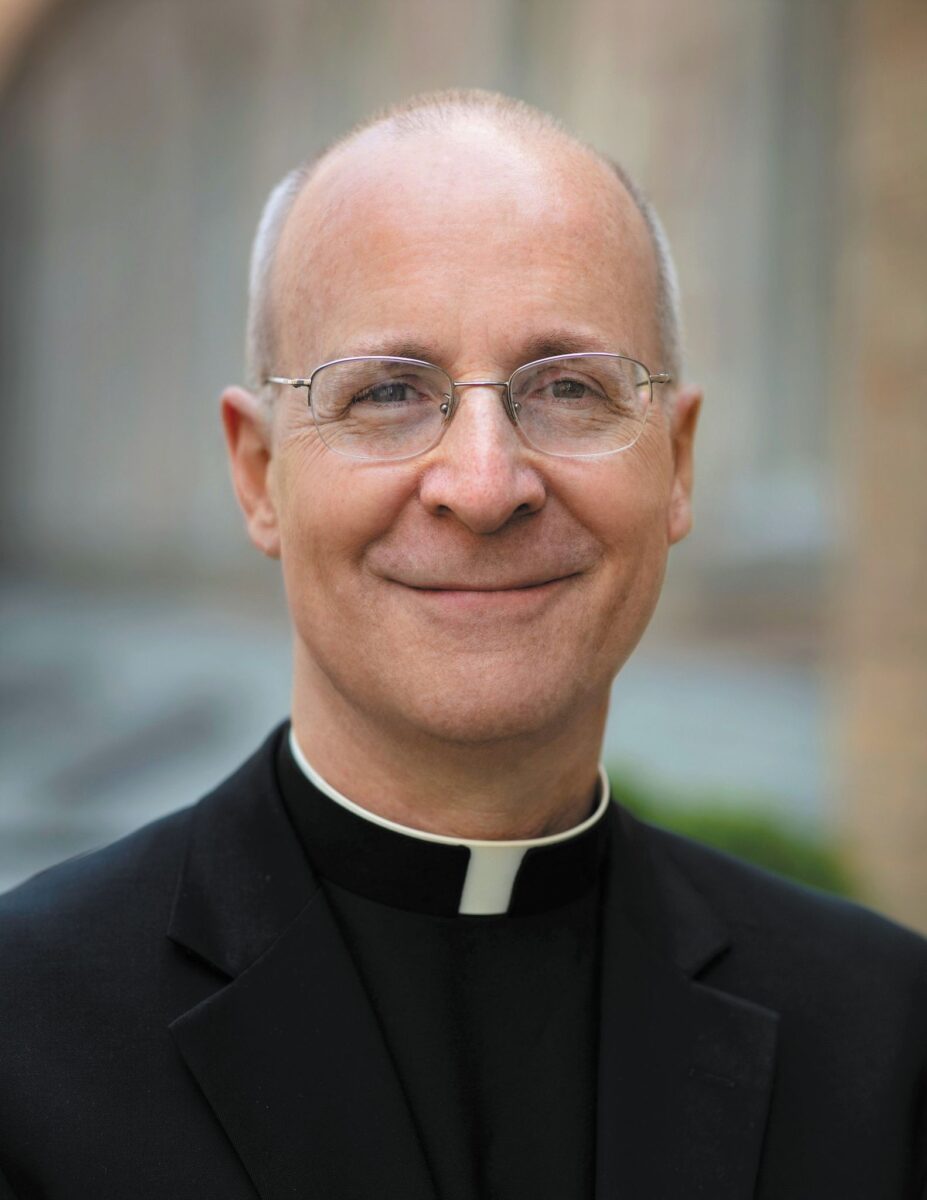
Narrator: To learn more about Father James Martin, follow him on social media, and be sure to check out his new book, Come Forth, at your favorite retailer.
Stay tuned to Michael Freeland Miller’s story after a brief message.
Find Freedom From Anxious Thoughts
Are you tired of feeling overwhelmed by anxiety and fear? Do you long for a life of peace and contentment, even in the midst of hardship and uncertainty? Visit www.readrelief.com and download a free copy of Relief: Finding Freedom from Anxious Thoughts. In this free e-book, you’ll learn to let God’s Spirit—ever present within you—guide your steps as you learn to trust in the unfailing love and care of Jesus. Don’t miss this opportunity to find relief and embrace a life brimming with the peace of Jesus. Visit www.readrelief.com today and start your journey to freedom from anxious thoughts.
Michael Freeland Miller is the founder and one of the senior leaders of UPPERROOM. In April of 2010, Michael and his wife started a small prayer meeting in an office space overlooking downtown Dallas. From that initial prayer meeting, God birthed a movement of prayer and worship that continues to grow globally.
Michael Freeland Miller: My name is Michael Miller, and I am the senior pastor and founder of UPPERROOM in Dallas, Texas. It’s a church that’s in the urban downtown area of Dallas. We planted it in 2010. I have been in some form of ministry for twenty-three years, and I’m honored to be here.
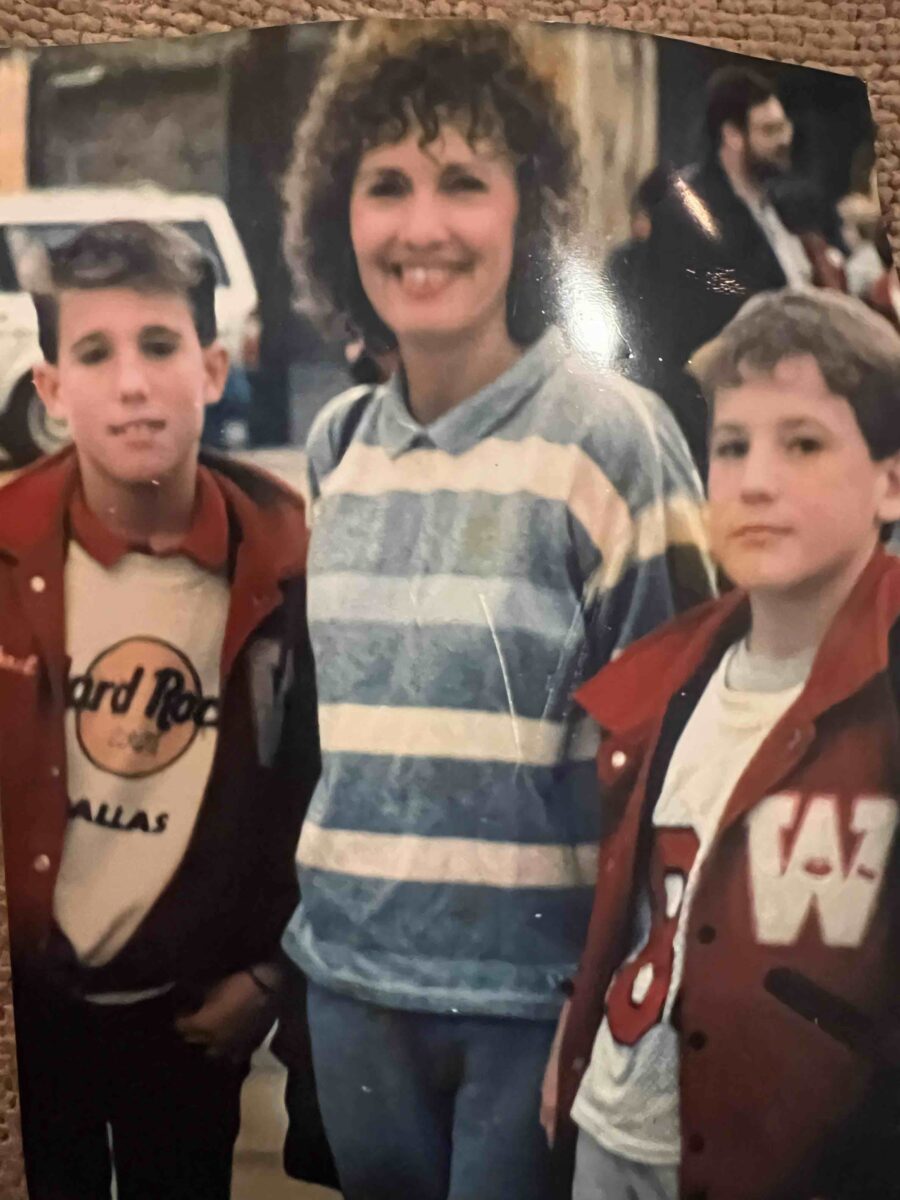
My dad had a phrase, “If the church is open, the Millers are going to be there.” So we went at least three times a week, if not more. And so my first job was at a very small church of Christ in the mid-cities here in the DFW area, where I was a youth pastor for four years. So I fell in love with the church during that time, really caught God’s heart for the power of the local church and the hope that it brings to a community.
Building a Church Centered Around Prayer
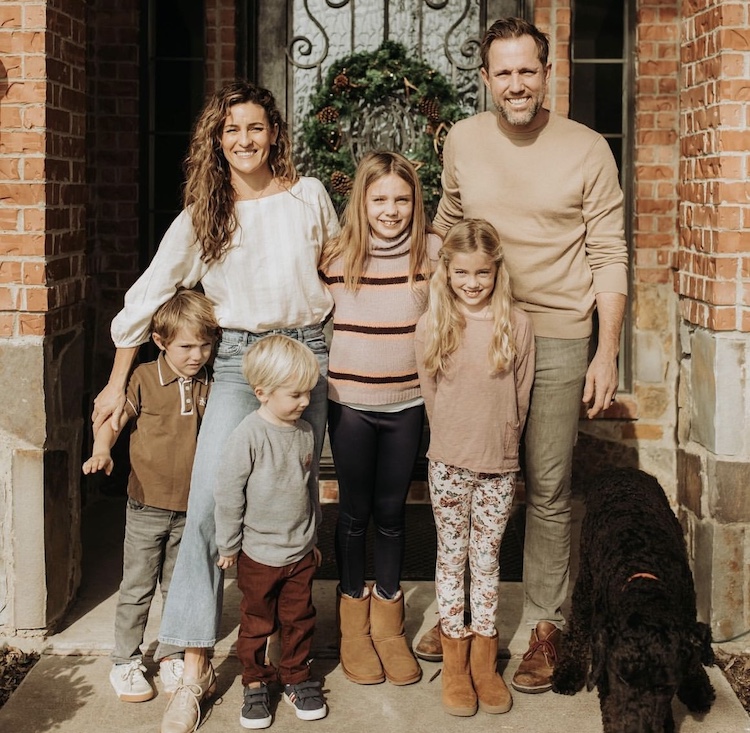
I was at a crossroads in my life trying to figure out what the Lord had next for my wife and I, was interviewing at churches, and really had a heart for prayer and thought this would be a great opportunity to pray for our city. I had a value for prayer and would do it weekly with others and daily by myself. The UPPERROOM started in a business in the uptown downtown area of Dallas.
And so we started Passover of 2010, and my goal was to make it to Pentecost, so seven weeks. But during that seven weeks, it was really interesting how the Lord connected us with specific people. There was a local coffee shop that we would go to often and just started running into believers who had a similar passion and heart for prayer. And so that meeting grew from maybe a half dozen people to a dozen, and we decided to press through the summer and keep praying.
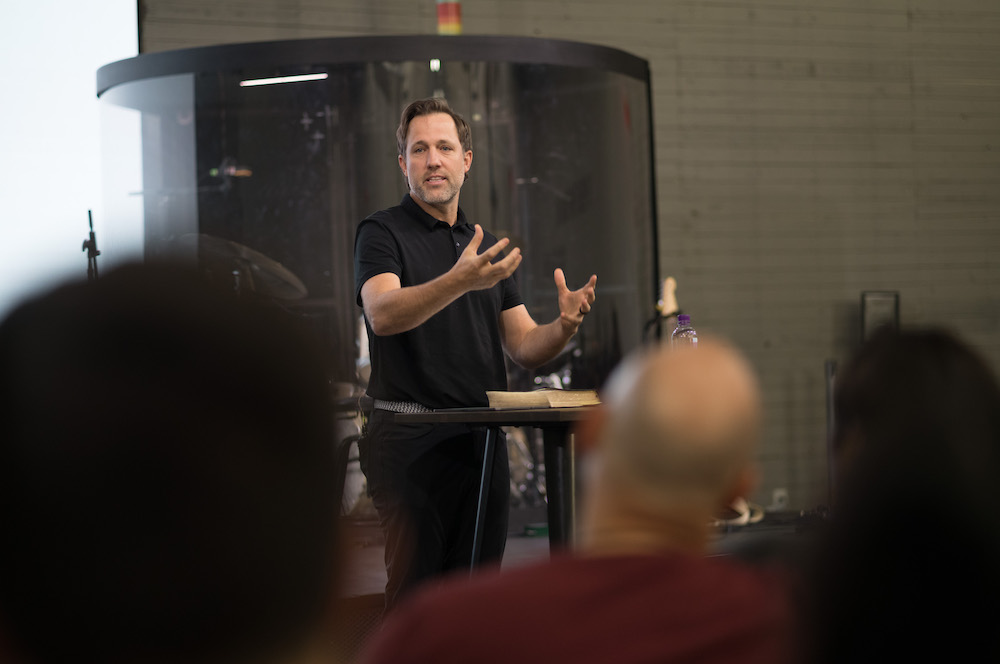
Praying maybe for an hour a week is doable, but praying multiple hours a day was the death of me. I actually realized that church planting is planting the church planter. And so I died a thousand deaths to my various strategies and the resume that I had built up in ministry. And the Lord really stripped me in that season in discovering what it was like to build a church around prayer.
“I died a thousand deaths to my various strategies and the resume that I had built up in ministry. And the Lord really stripped me in that season in discovering what it was like to build a church around prayer.” – Michael Freeland Miller
There was a couple that had been in our lives that said, “Hey, we actually want to move from Garland”—which is a suburb of Dallas—“to this urban downtown area, to host more hours of prayer.” Little did I know God was actually planning a church around this prayer meeting. God was really first dealing with me. He showed me that I wasn’t as awesome as I thought I was. You know, Am I enough? Am I sufficient? Am I truly the one that’s building this? I became convinced in those early days that, Yes, Lord, you are. If it’s you that’s building it, I only want what you’re building.
Prayer As a Means to Know God
I think prayer is a means to God’s presence, His spirit. And so it went from just a prayer list and things we were praying for and initiating God to do something on our behalf, to us learning how to adore Him and love Him.
“I think prayer is a means to God’s presence, His spirit.” – Michael Freeland Miller
In Deuteronomy 10:8, He called the Levites, and they were to minister to Him and that meant they were to serve Him, they were to tend to Him. And it really led me on a journey theologically in understanding how our worship moves Him, how our prayers touch Him, how He draws near to us as we draw near to Him, and where two or more gathered, He dwells with us.
Jesus said His house will be a house of prayer. And I often said to Jesus like, “Are you sure you meant that your house will be defined by this activity or a culture of prayer?” And when I look at the churches that I was involved with or even the church today, I don’t know if that’s the defining activity for His house. And I think God was really wanting us to discover that invitation to build a house that’s centered upon prayer. So that’s been really the mark of our community.
We didn’t have a website, we didn’t do social media, we didn’t have YouTube or podcast. We just felt like the testimony of the Lord was to mark what He was doing. And it was an unconventional way to start a church.
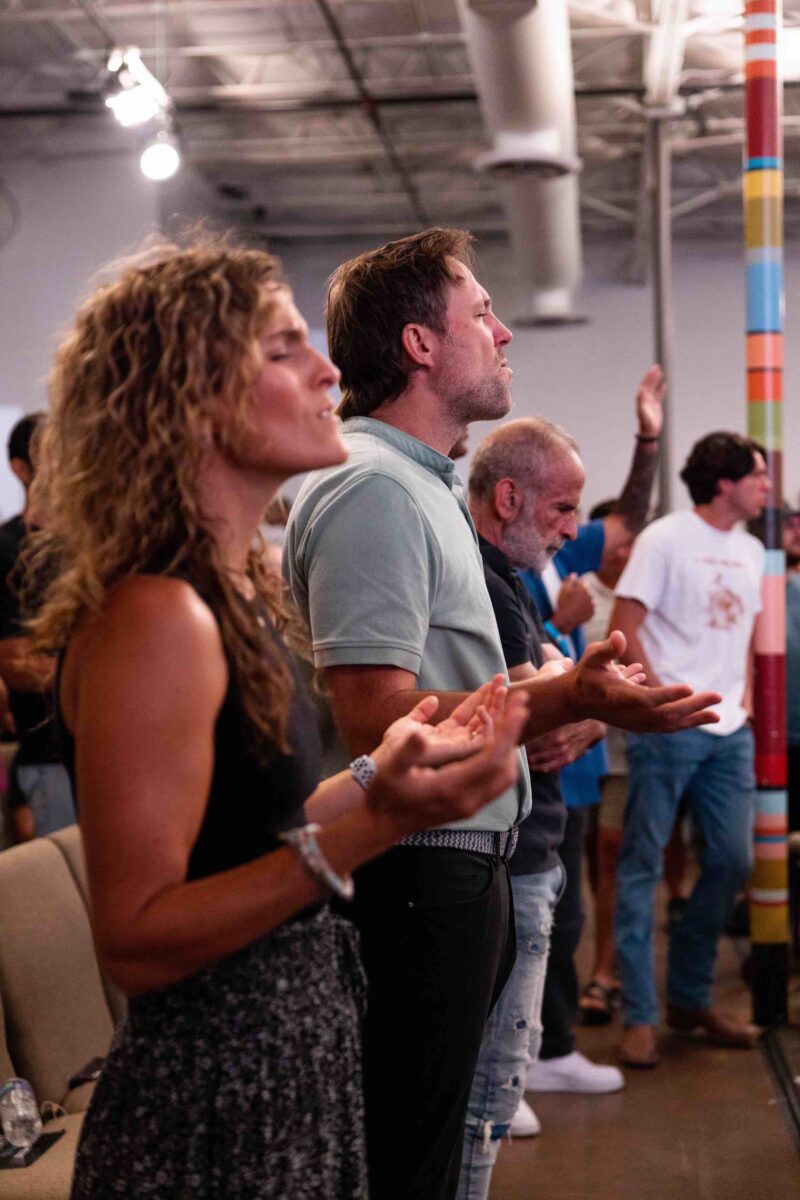
Something really special started happening. God put a grace on our community.
There’s such a hunger in this generation I think for something authentic, something beyond just cultural Christianity. And they’re really discovering a true faith and it’s beyond just prayer meetings and services. They’re really living out their faith day in and day out doing evangelism, discipleship. There’s a hunger for His Word. And so it’s been profound to see what this generation is carrying.
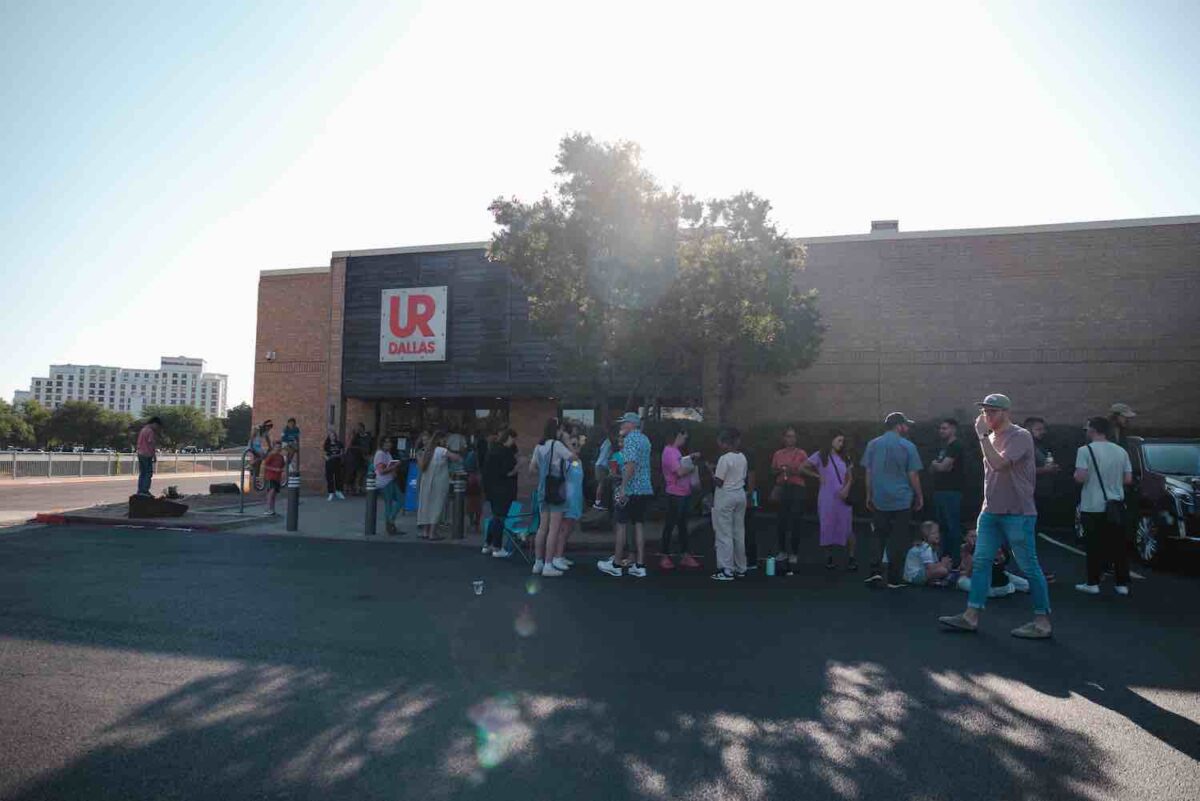
Our prayer room is open 6:00 AM to 8:00 PM, so it’s a little over fourteen hours a day, and it probably has two to three people that are majority volunteers that serve in it. So a lot of musicians, a lot of worship leaders, and then we have prayer leaders as well—our morning, noon and night sets are our full team.
It wasn’t preaching, although we eventually did preach, it wasn’t the worship, and we had pretty powerful worship. But the main phrase describing the UPPERROOM then, and I would say it’s the main phrase that’s still used today, is God’s here. I encounter God when I go to that place. And to me, it’s probably the neatest and coolest testimony to hear people leave going, “Man, God is there.” So it’s been a really cool thing.
Praying Prayers of Thankfulness
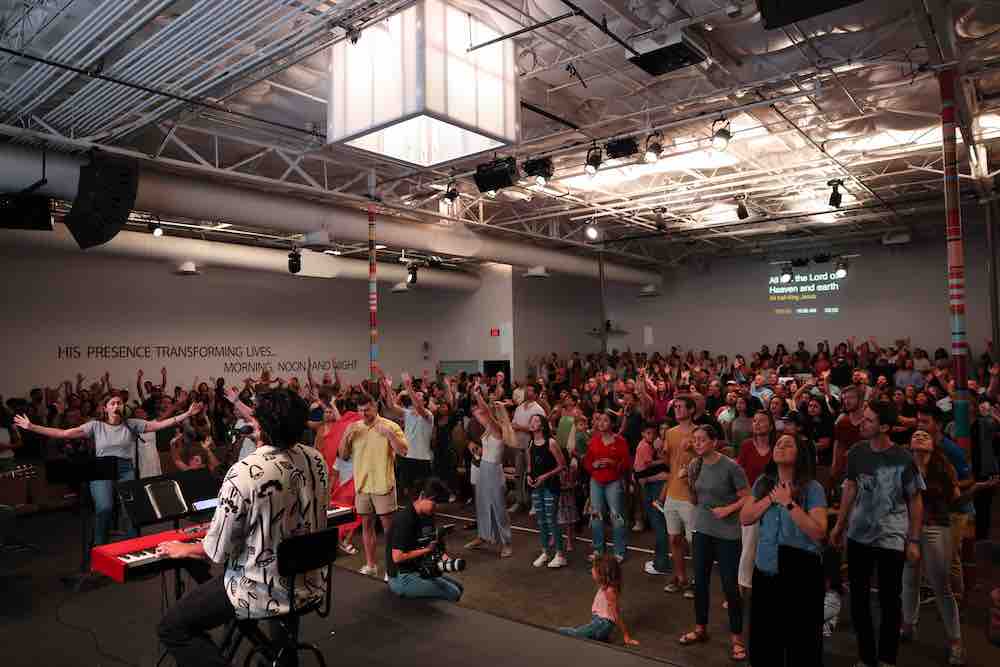
I find such joy in praying with God’s people. I find it encourages my faith to listen to other people pray, and then I love to pray for them and then pray together for initiatives that we have for our city or church. So those are some helpful things for me.
“I find such joy in praying with God’s people. I find it encourages my faith to listen to other people pray, and then I love to pray for them and then pray together.” – Michael Freeland Miller
I think resources like Jesus Calling are so needed. My wife loves Jesus Calling. She has been so blessed by the simplicity and accessibility to the Lord she finds in Jesus Calling. When I get to that time and place of approaching the Lord—and I usually spend a considerable amount of time in thanksgiving—thanksgiving does something to my heart. I pray until I believe it. I pray prayers of thanksgiving until I actually start to believe it. And because it’s coming alive in my heart, my heart’s actually opening up to the Lord.
Jesus Listens, January 15th:
Gracious God,
As I journey with You today, please help me to thank You all through the day. This practice makes it more feasible for me to pray without ceasing, as the apostle Paul taught. I long to be able to pray continually, and thanking You in every situation facilitates this pursuit. My thankful prayers provide a solid foundation on which I can build all my other prayers. Moreover, it’s so much easier for me to communicate freely with You when I have a grateful attitude.
If I keep my mind occupied with thanking You, I’m less likely to fall into hurtful patterns of worrying or complaining. I’ve seen that when I practice thankfulness consistently, negative thought patterns gradually grow weaker and weaker.
A grateful heart opens up the way for me to draw near to You. And Your glorious Presence fills me with Joy and Peace.
In Your joyous Name, Jesus,
Amen
Narrator: To learn more about Michael and UPPERROOM, please visit www.upperroom.co. And be sure to check out his book, His House, His Presence, at your favorite retailer.
Now, please enjoy this sneak peek at Reba McEntire’s audiobook, Not That Fancy.
Sneak Peek: Reba Mcentire’s Not That Fancy
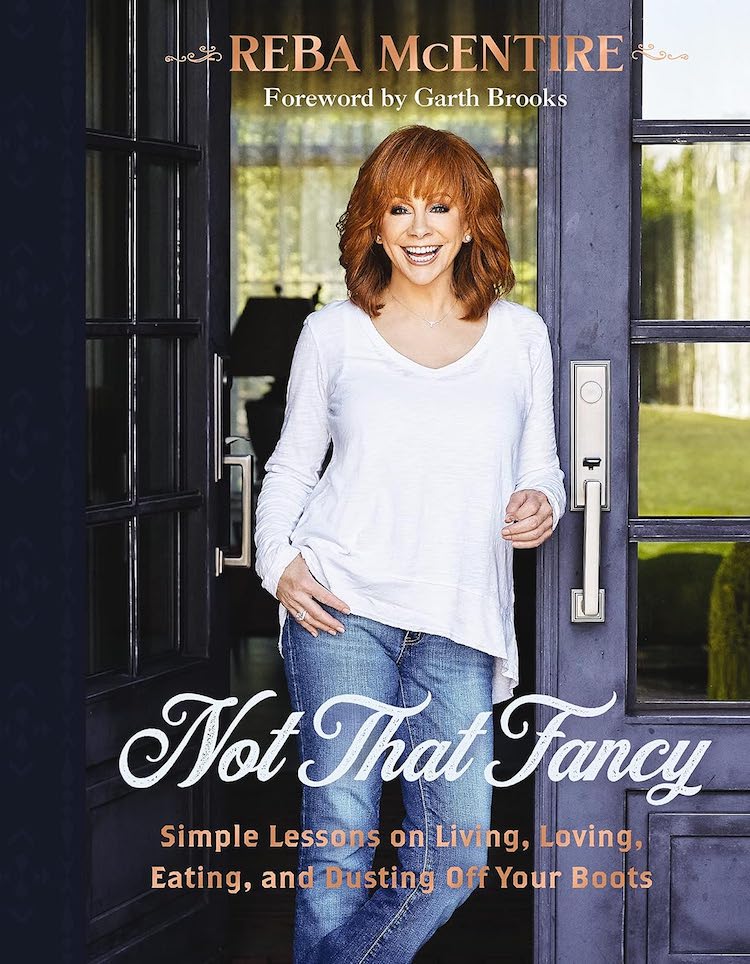
Reba McEntire: Traditions are only worth keeping if they’re fun and if they make you happy. If a tradition doesn’t do that anymore, it’s time to pitch it and replace it with something that does. That goes for every holiday, not just Christmas. There’s no wrong way to celebrate. And the right way is whatever makes you feel good. How about loading up on popcorn and candy and watching the silliest, funniest movie you can find? Make tacos instead of turkey, mashed potatoes and eggnog. Have a board game tournament instead of exchanging gifts or go on a vacation if you usually stay home. My only real holiday tradition is remembering the reason for this season. It’s Jesus’s birthday. How different things would be without Jesus in my life. Oh, man, I don’t even want to think about it. Other than that, I do what’s fun and what will make me happy, even if it means doing something totally different every year. It turns out there’s a lot of joy in letting go of expectations and just going with the flow.
Narrator: If you’d like to hear more stories about the power of prayer, check out our Peace in Uncertain Times video with Ryan Stevenson on the Jesus Calling YouTube channel.
